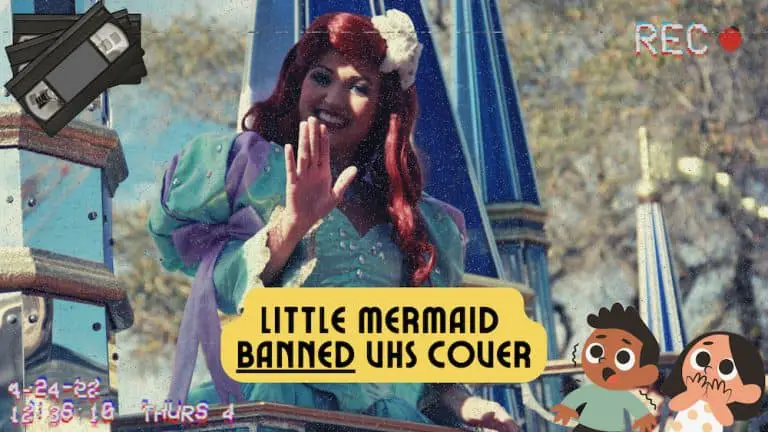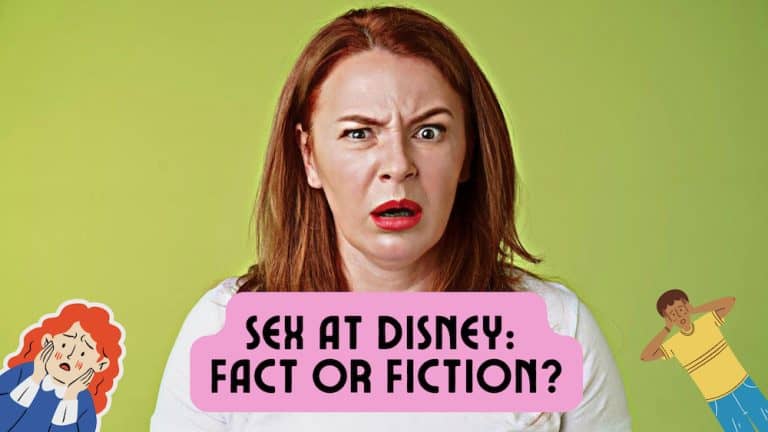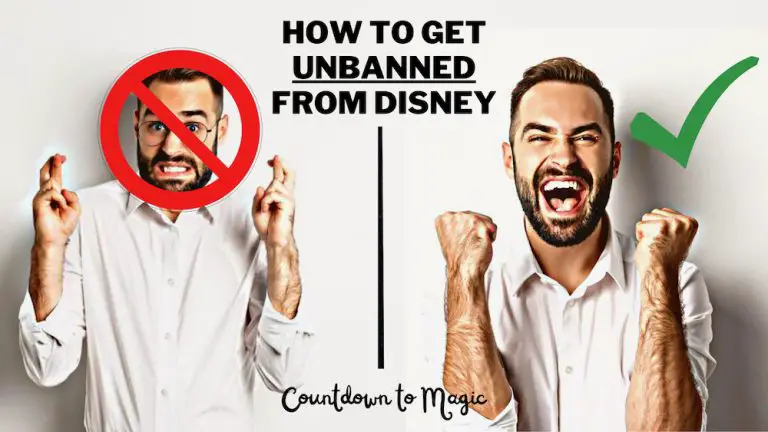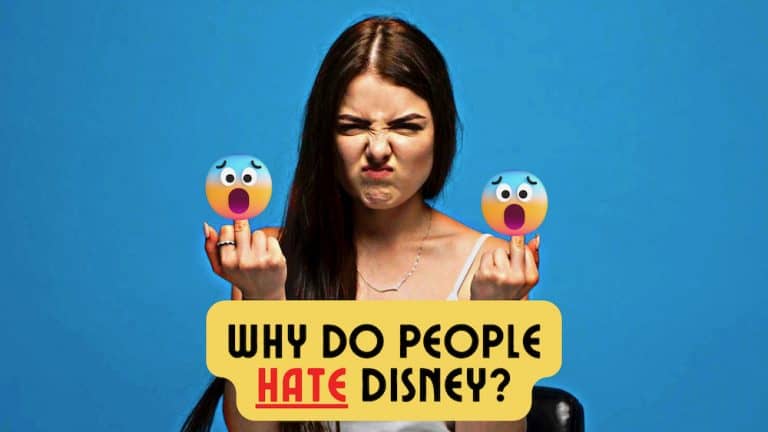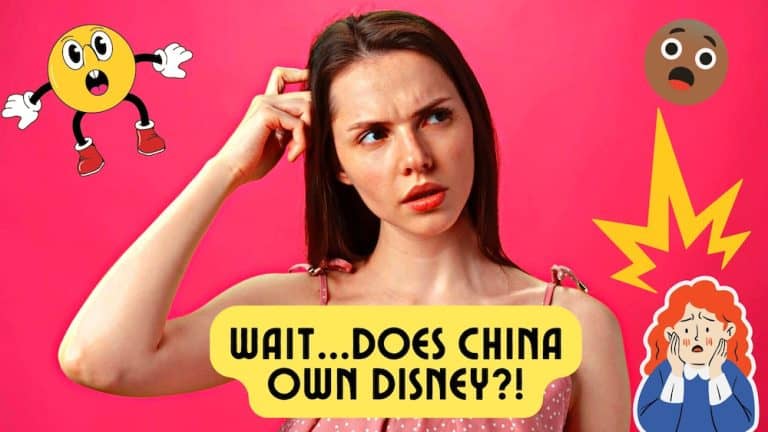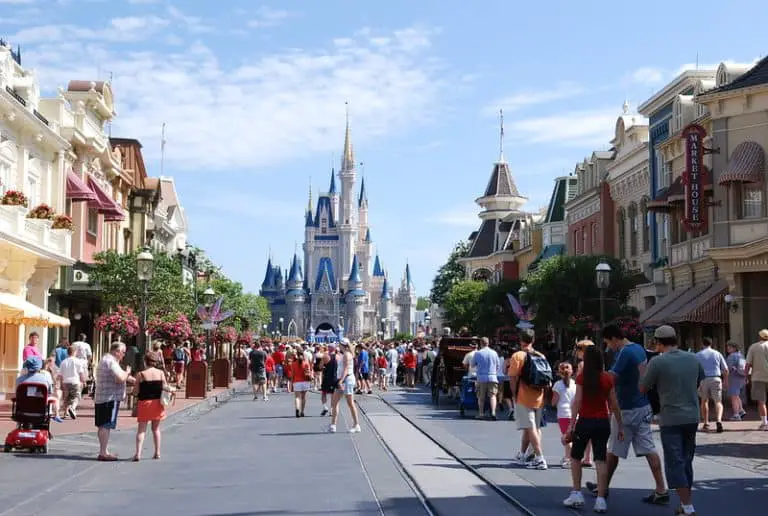Why Conservatives Are Mad at Disney – Assessing Their Hate
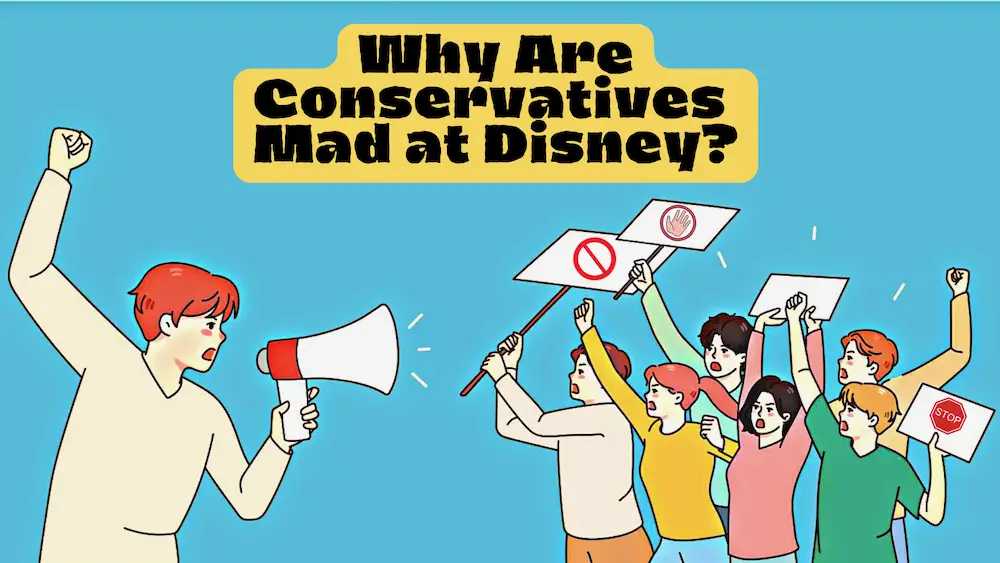
If you’re a Disney fan, you’ve probably noticed that there is a rise in people who seem very angry at Disney right now. Most of these people openly identify as “conservatives” politically. They’re angry, and many say they’re “boycotting” Disney for life. But why are conservatives mad at Disney? And is it all political rhetoric, or is their beef with Disney legitimate? Well, let’s explore this issue deeper today.
Why Are Conservatives Mad At Disney
Let’s first begin with one of the most polarizing charges thrown at the feet of the Disney brand: that they’re “too woke” and are all about pushing agendas. If you ever hear someone scream, “I Hate Disney,” this first reason is often why.
Disney Has Gone “Woke”
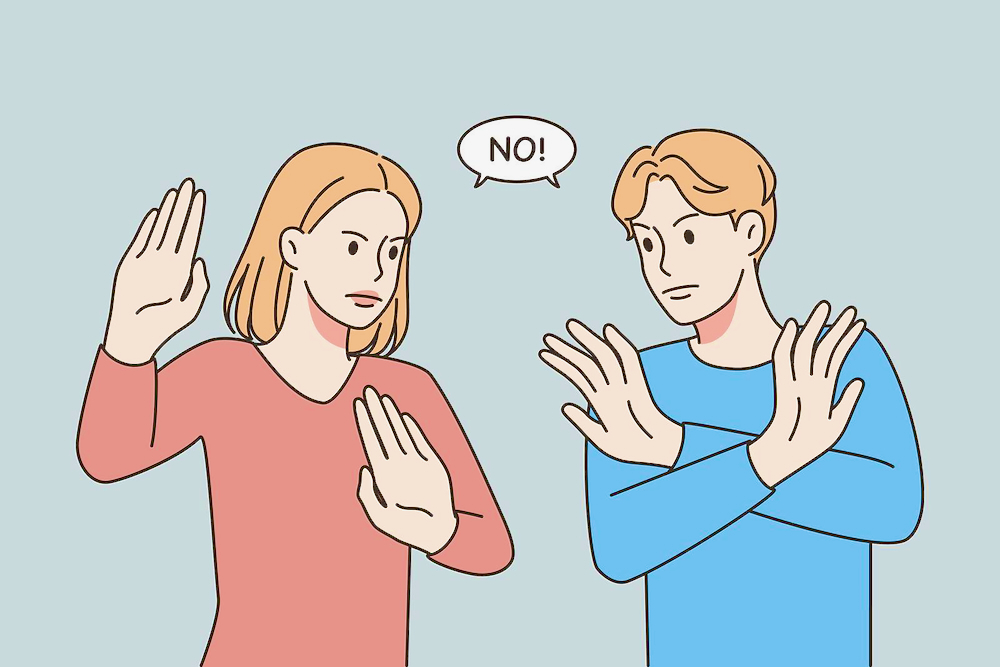
If you currently pay attention to any criticism about Disney, you’ll inevitably hear that the company is “too woke.” But what does that even mean?
Well, the term “woke” has been around for a long time, and originally meant being aware and well-informed of current social-political issues. It originally came from African American culture, a rallying cry to be suspicious of people and systems with nefarious motives. It was then cemented further into the mainstream with Childish Gambino’s song “Redbone.”
Over the past few years, “woke” has been snatched by conservatives with the intent of using the term as a pejorative. Currently, you’re more likely to hear “woke” as an umbrella insult from Conservatives to describe anyone (often liberals or minorities) they disagree with.
Minnie Mouse Pantsuit Debate
For example, in 2022, Disneyland Paris debuted a more modern outfit for Minnie Mouse in celebration of Women’s History Month. Instead of the red and white dress that she usually wears, Minnie was seen in a blue pantsuit designed by Stella McCarthy. It’s certainly not Minnie’s usual look, but who would’ve guessed it would spark outrage expressed by Disney Fans? Several online comments on this story accused Disney of trying to make Minnie Mouse look like Hillary Clinton.
The Little Mermaid Remake Outrage
Another bit of the “Disney is too woke” outrage was generated by the announcement that a non-white actress was cast in the role of Ariel for the live-action remake of The Little Mermaid. The sole reason for the anger around this casting choice seems to be that a lovely, talented woman of color will portray Ariel instead of a white actress. Many Disney fans aren’t even denying that is the reason they’re mad, and some went as far as to turn the actress (Halle Bailey) white using Artificial Intelligence.
Ariel’s race doesn’t have any influence on the film’s story. You could recast her as being bald with orange polka-dotted skin, and still be able to tell the same story. I’m going to wait to actually see the movie before I make any judgment on the casting choices.
Splash Mountain and Song of the South
Most recently, there’s the issue of Disney’s decision to re-theme Splash Mountain. This iconic Disney World ride isn’t going away; it will be redone as “Tiana’s Bayou Adventure”. The Princess and The Frog theme was chosen to replace the ride’s old theme, which came from the film “Song of the South,” a movie that is known to feature some problematic racial stereotypes. In fact, in 2020 there was a petition on Change.org asking Disney World to update Splash Mountain to a Tiana-themed attraction.
Disney has acknowledged the problems with the racial themes of “Song of the South.” It has been made very clear that the movie won’t be released on Disney+, as well. In spite of that, fans of Splash Mountain have accused Disney of “giving in to the woke left” and being part of “cancel culture” with the decision to revamp this ride.
I can’t help but wonder how many people who ride Splash Mountain on any given day have even seen “Song of the South”. Do the children on the ride have any idea of the story behind the characters?
When fans seem upset over changes to long-established characters or attractions, I think it is simply that some people don’t like anything to change. There is a lot of nostalgia involved with Disney, and it can be upsetting to lose something that was familiar and meaningful. However, I also appreciate that Disney doesn’t allow their attractions or entertainment to stagnate. Changing with the times and staying on trend helps them to attract a more diverse fan base over time.
- You May Also Enjoy: Disney Subliminal Messages
Disney’s Business Dealings With China
The Walt Disney Company has a complicated business relationship with China, including business practices that have made American conservatives quite unhappy.
Disney’s interests in China have recently come back in the spotlight with conservative news sources since Bob Iger returned as Disney CEO. Fox Business News, which has well-known conservative leanings, recently said that Mr. Iger “has a long history of cozying up to China for corporate interests while bashing conservative efforts in the U.S”.
It’s true that Bob Iger, along with former Disney CEO Michael Eisner, worked with Chinese officials for years to establish the two Chinese theme parks. Iger has also negotiated the rights to distribute movies in China. But that isn’t even the first time Disney has been criticized for doing business with China.
In 2020, then-Attorney General William Barr, a well-known conservative, made the following remark: “I suspect Walt Disney would be disheartened to see how the company he founded deals with the foreign dictatorships of our day.”
Barr also made the accusation that 11,000 full-time Chinese Disney park employees are “active members of the Communist Party,” and that these employees “reportedly display hammer and sickle insignia at their desks and attend Communist party lectures during business hours”.
It’s unclear, however, just how William Barr would know how many Chinese Disney employees are members of the Communist party, or if they display any insignia at their desks—but the criticism is out there.
So what exactly are Disney’s business interests in China? In a nutshell, Disney has two theme parks in China, and much of the Disney merchandise is manufactured in China. Disney also has been known to selectively edit its films that will be released in China. There was also some significant controversy regarding the live-action remake of “Mulan”, which was filmed in Xinjiang. This is a region in China where members of the Muslim Uyghur minority have been mass incarcerated by the Chinese government.
The two theme parks – Shanghai Disneyland and Hong Kong Disneyland – are both majority-owned by the Chinese government. The Walt Disney Company owns 43% of Shanghai Disneyland, and 47% of Hong Kong Disneyland, although Disney does oversee the management of both these parks.
So yes, Disney is conducting business with China, a Communist nation that has been accused of many human rights violations. It’s problematic for Disney. I can certainly understand the conservative criticism on some of these issues. However, it should be noted that Disney certainly isn’t the only U.S. company that conducts business with China. In fact, every year, the U.S. as a whole imports hundreds of billions worth of goods from China every single year.
While conservatives single out Disney for its extensive business interactions with China, they’re noticeably quiet on commenting about other corporations doing the same. So while these criticisms are understandable—and I’d even said somewhat fair—it does seem like Disney is being singled out while other corporate entities with Chinese business (perhaps ones that more align with the politics of conservatives) are rarely mentioned.
LGBTQ+ Inclusion and Representation
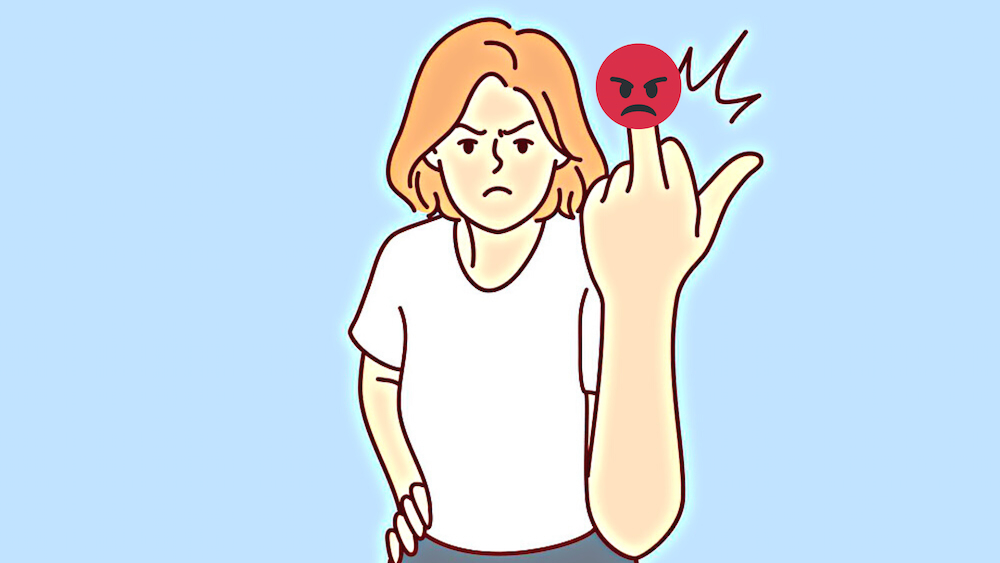
In the past several years, Disney has made a point of adding LGBTQ+ characters in some of their movies and TV productions, as well as updating verbiage in the theme park shows and dress codes to be more inclusive.
Going as far back as 1996, Disney began making strides for more acceptance and inclusivity to the LGBTQ+ community when it offered insurance benefits for some same-sex partners of their employees.
Most recently, there has been a mild uproar over a lesbian couple kissing (very briefly) in the movie “Lightyear”, and one of the main characters in the recent movie “Strange World” is a gay teenager. These are not the only instances of same-sex couples or families in Disney entertainment, nor was their sexuality the main plot point of these films.
Nevertheless, some conservatives have repeatedly called for boycotts of everything related to Disney. They’ve spread accusations of Disney pushing a “sexual agenda,” and of staging a clandestine “war on Christianity.”
If one’s religious beliefs are against homosexuality then one is free to follow those beliefs. I can respect that. It doesn’t mean that everyone else in the world has to follow those same beliefs, however.
What really doesn’t make sense to me is that some of the Conservative Christian groups are accusing Disney of “abandoning its original values”, and being “anti-Christian.” Well, The Walt Disney Company is not, and never has been, a religious organization. Disney does its business in a secular entertainment industry, and it has the right to tell whatever stories it wants to customers that want to consume it.
It’s true that Disney has often been described as a company focused on “family entertainment,” but the definition of family is much broader than what Disney portrayed decades ago. The standard entertainment industry model of a Dad, Mom, and a couple of children is nice, but it doesn’t represent everyone.
There are families with two mom or two dads, families with single parents, and families with mixed-race parents. Some of these descriptions might not fit the ideals of Conservative Christians, but that doesn’t mean they don’t exist. When Disney includes (for example) a same-sex couple in a story, it’s more a matter of being inclusive of all families than an attempt to exclude Conservatives.
Make no mistake, Disney wants to make as much money as possible. And typically, appealing to the most amount of people (from as many backgrounds as possible) is a recipe for making a handsome profit. And while “Strange World” wasn’t very successful, films like “Black Panther” and “Encanto” became pop cultural touchstones.
Governor Ron DeSantis vs Disney
The situation in Florida between Governor DeSantis and Walt Disney World is convoluted and messy. I’ll try to describe it succinctly here.
It began when the Florida Legislature created the “Parental Rights in Education” bill (also known as the “Don’t Say Gay Bill”), which among other things, would limit what could be taught in and discussed in public schools on the topics of gender identity and sexual orientation. While Conservatives were greatly in favor of the bill, many educators and parents were not. They felt that the bill had the potential to alienate and marginalize school children who are or have family members in the LGBTQ+ community.
How does Disney fit into this political argument? Well, being the largest employer in Central Florida, Disney does have some influence in the area. At first, there was no official corporate statement being made on this matter. Then Disney cast members and shareholders became frustrated with the corporation’s silence. Eventually, former CEO Bob Chapek issued a somewhat clumsy statement confirming Disney’s opposition to the bill. By this time, the Governor had signed the bill into law.
Unfortunately, Governor DeSantis then decided on an action that seems to serve no purpose other than to retaliate against Disney’s opposition to the new law. He supported (and eventually signed) a bill to abolish the Reedy Creek Improvement District (RCID).
The RCID was a state law approved by the Florida Legislature back in 1965. It basically allows Walt Disney World the power to govern itself. Disney pays municipal taxes to RCID, can issue bonds, approve development plans, and issue permits. The governor issued statements about “ending Disney’s special privileges” as justification for this bill to abolish the agreement.
It should be noted that yes, while it is true the RCID was all about privileges granted to Disney, the company still paid property taxes to both Orange and Osceola counties. The RCID wasn’t about Disney not having to pay its fair share of taxes. Also, if RCID is dissolved, their bond debt would probably have to be assumed by Orange and Osceola counties, perhaps resulting in property tax hikes in those counties.
Governor DeSantis’ reason for this action seems to be retaliation for Disney’s statement against the “Don’t Say Gay” bill. It’s unclear how this action will help the State of Florida, or what the intended outcome was supposed to be. Given how long the RCID has been in existence without opposition, the situation seems to be a high-profile political stunt, perhaps to further Governor DeSantis’ career. Who knows? It’s going to be interesting to see how this matter is eventually resolved.
Righteous Anger or Fear of Change?
I’ve been trying to find definitive answers to the initial question: are conservatives mad at Disney, and if so why?I understand some of the opinions, and I respect that people are entitled to their opinions—whether I agree with them or not.
Sadly, some of the angry opinions being expressed by Conservative spokespeople, TV anchors, and religious organizations cross a line from disagreement to ugly vitriol.
Not too long ago, some protestors displayed deeply offensive flags outside the Walt Disney World entrance. Also, the website “One Million Moms” repeatedly creates petitions urging Disney to stop “glorifying the homosexual lifestyle.” Then there are the Conservative Christian groups who insist that Disney entertainment should follow their religious belief system. These are all examples where expressing disagreement or anger has gone to such an extreme level, it becomes paranoid hate speech.
The Conservative mindset has always been somewhat resistant to cultural change. That’s perfectly valid. I think Disney is such a huge part of American culture that when the company starts making updates to its entertainment, it appears unsettling.
Disney evokes a certain nostalgia for what the ideal family life should be. In the interest of being more diverse and inclusive, Disney has shaken up that ideology that some Conservatives hold dear. It’s different from what they’re used to, and that’s uncomfortable. I get that.
However, instead of insisting that the Walt Disney Company follow Conservative political agendas or Christian dogma, people should just decide for themselves if they can support Disney based on one’s own personal values. If Conservatives don’t want to patronize Disney Parks or watch Disney movies, that is well within their rights. It doesn’t give them the right to insist on imposing their beliefs on everyone else, however.
This article was written by Kimberly and edited by Michael.
- If you enjoyed this article, please “like” our Countdown to Magic Facebook page!
You Might Also Like:
